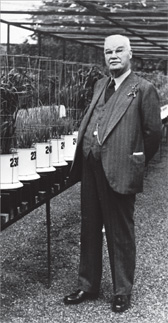The lecture will look at the implications of the transition to sustainability for Scottish governance. It will reflect on the role of the Scottish Executive, the Scottish Parliament, the non departmental bodies, business and civil society. It will also introduce the role of sustainability appraisal as a policy evaluation mechanism. Finally, it will assess how far Scotland has come, and has to go to meet the transition to sustainability.
Speaker Details
Timothy O'Riordan is Professor of Environmental Sciences at the University of East Anglia and Associate Director of the Centre for Social and Economic Research on the Global Environment. Tim O'Riordan began his academic career in the Geography Department at Simon Fraser University where he became actively involved in environmental politics in Vancouver in the early 1970s. In those days, planning and transport issues, air pollution and water quality matters were the contested topics, but neither the City Council nor the BC Social Credit Government at the time were in any mood to listen. Tim O'Riordan also taught in a highly interactive environmental education summer school in SFU, and was an associate of Westwater Research at UBC.
He joined the School of Environmental Sciences in 1974, where he took up the cause of the interdisciplinarity in environmental sciences. He became actively associated with the management of the neighbouring wetlands known as the Norfolk Broads, and served as Chair of the Environment Committee of the Broads Authority for 20 years.
Over the years he has become involved in studying the politics of the transition to sustainability in Europe, and has become active in working closely with businesses on their own journey to sustainability. He is a member of the international environmental advisory panels to Dow Chemical, Eastern Group, and one of the core faculty of the twice yearly HRH The Prince of Wales Senior Executive Seminar on Business and the Environment.
During the 1980s he acted as a scientific adviser to the Economic and Social Research Council, the Nature Conservancy Council for England, the European Science Foundation (where he headed up the five year Science and Society Project) and the European Commission. He has served on many scientific panels and working groups in the pursuit of excellence in science and in interdisciplinarity.
He is now a member of the UK Sustainable Development Commission. This is a three year appointment (2000-2003) to help the nation move on the transition to sustainability.


 The annual T.B. Macaulay Lecture is held to honour the vision of
The annual T.B. Macaulay Lecture is held to honour the vision of 